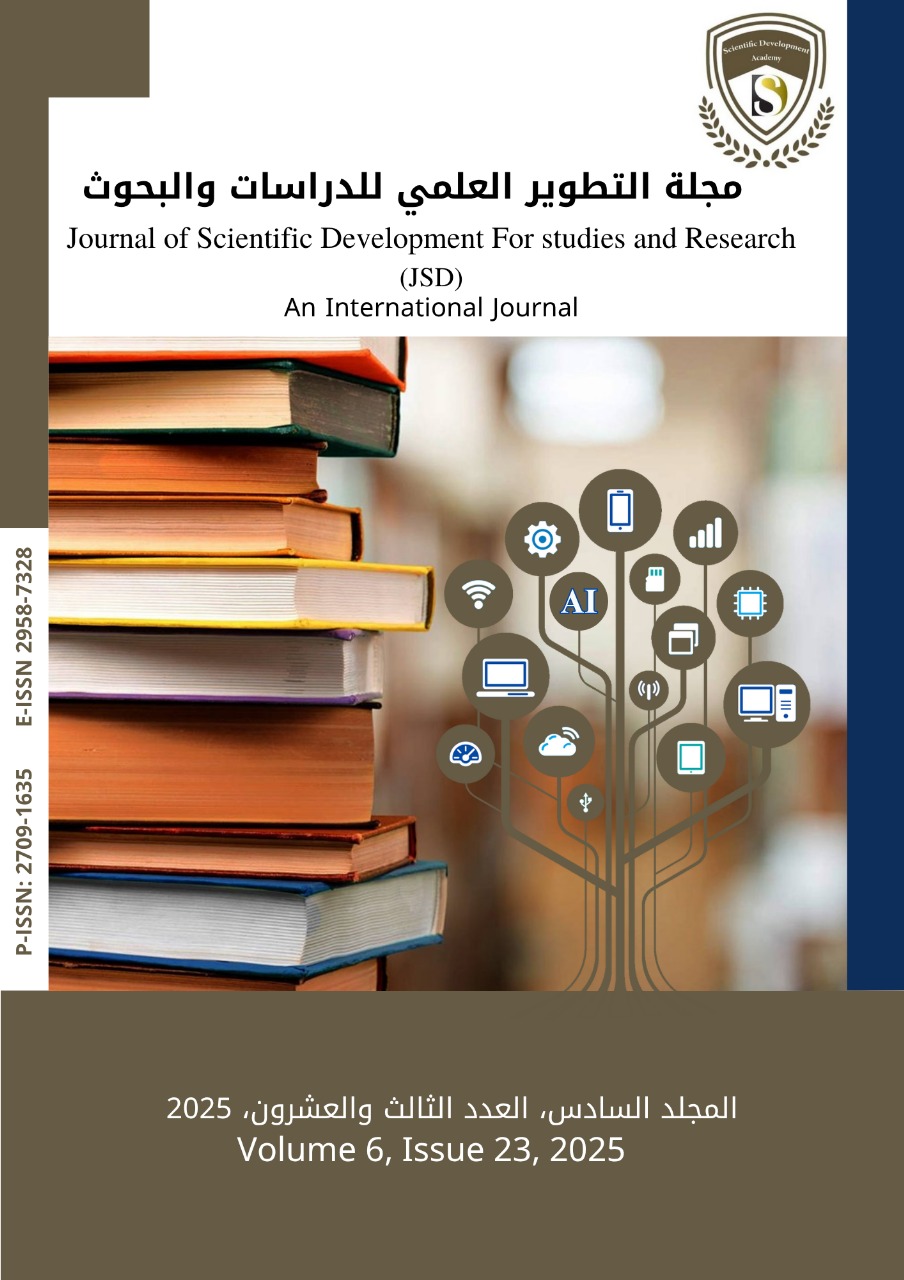دور الذكاء الاصطناعي في تقييم تأثير التغيرات المناخية على الالتزامات البيئية والمدنية للشركات "دراسة قانونية "
DOI:
https://doi.org/10.61212/jsd/421الكلمات المفتاحية:
القانون الأردني، الامتثال البيئي، الشركات، الالتزامات القانونية، التغيرات المناخية، الذكاء الاصطناعيالملخص
ضع الملخص هنا (يتم الإشارة في الملخص إلى هدف البحث، وأهم النتائج المتوصل إليها في فقرتين). ضع الملخص هنا (يتم الإشارة في الملخص إلى هدف البحث، وأهم النتائج المتوصل إليها في فقرتين).
يشهد العالم تغيرات مناخية متسارعة تؤثر بشكل مباشر على الالتزامات البيئية والمدنية للشركات، مما يستدعي تطوير أدوات تقييم ومتابعة قانونية أكثر كفاءة. يلعب الذكاء الاصطناعي دورًا متزايدًا في تحسين تقييم المخاطر البيئية وتعزيز الامتثال القانوني من خلال تحليل البيانات والتنبؤ بالاتجاهات المستقبلية. تهدف هذه الدراسة إلى تحليل دور الذكاء الاصطناعي في تقييم تأثير التغيرات المناخية على التزامات الشركات، من خلال استعراض الأطر القانونية والتشريعية ذات الصلة، مع التركيز على القانون الأردني. تعتمد الدراسة على المنهج التحليلي لمراجعة القوانين البيئية والمدنية، بالإضافة إلى تحليل دور التقنيات الذكية في تحسين الامتثال القانوني للشركات.
وتتناول الدراسة كذلك التحديات القانونية الناشئة عن استخدام الذكاء الاصطناعي في هذا المجال، خصوصًا ما يتعلق بالمسؤولية التقصيرية الناتجة عن قرارات أو توصيات خوارزميات الذكاء الاصطناعي، ومدى قدرة الأطر التشريعية الحالية على مواكبة هذه التطورات. كما تسعى إلى تقديم تصور قانوني متكامل يعزز من التكامل بين التكنولوجيا الحديثة والنظام القانوني، بما يضمن تحقيق العدالة البيئية، ويوفّر آليات فعّالة للمساءلة والتعويض. وتخلص الدراسة إلى مجموعة من التوصيات التي تستهدف تطوير المنظومة التشريعية وتعزيز دور القضاء في هذا السياق المتغير.
المراجع
التنزيلات
منشور
إصدار
القسم
الرخصة
الحقوق الفكرية (c) 2025 مجلة التطوير العلمي للدراسات والبحوث JSD

هذا العمل مرخص بموجب Creative Commons Attribution 4.0 International License.






























